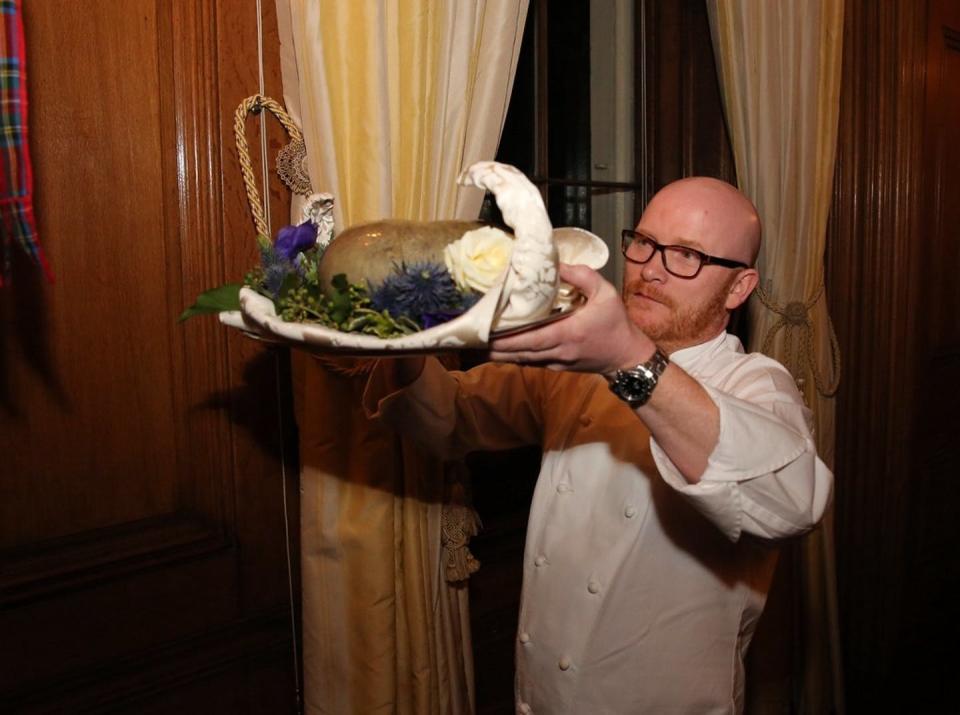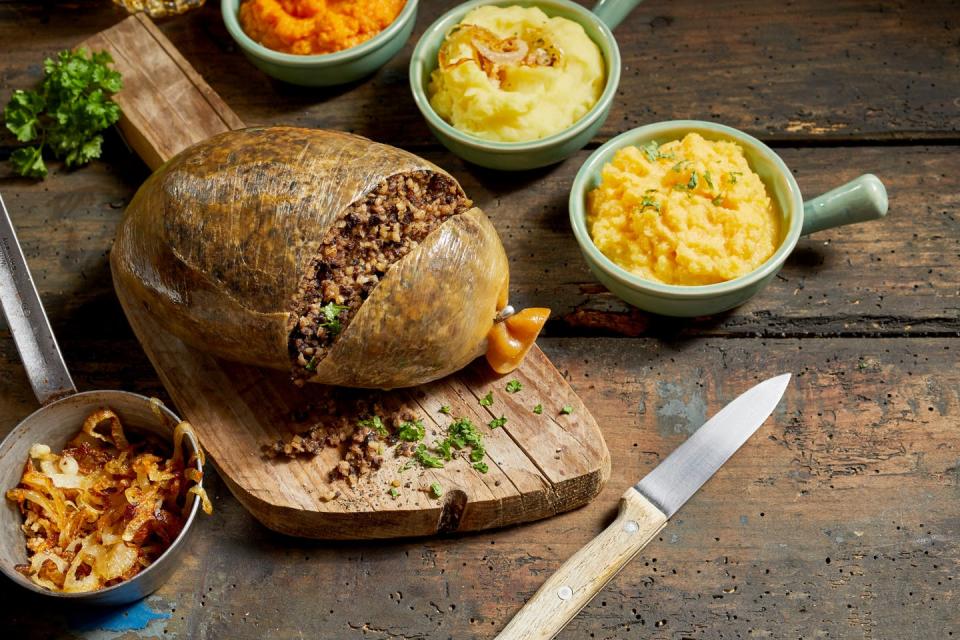How new and 'auld' acquaintances are celebrating Scotland's national bard on Robbie Burns Day

Jan. 25 is the day when people in Scotland and around the world fete Scotland’s national bard, Robert (“Rabbie” or “Robbie”) Burns.
The 18th-century poet’s radical messages of political equality penned in a time of populist agitation against the state have attracted both long-standing popular interest and scholarly debate. Scholars have also explored an ecological consciousness that pervades his work.
While Burns’s womanizing and his rebuke of orthodox religion and conventional morality often attract popular attention, now as in his time (1759-96), the quality and substance of his poetry continue to capture the imagination.
Burns embraced the vocabulary of his native lowland region of Scotland. In “A Red, Red Rose,” he spoke of: “luve … Till a’ the seas gang dry.”
Like Highland games that are organized across the globe, and tartans worn at weddings worldwide, Burns has become an essential part of Scotland’s brand in a globalized era where markers of national difference are central to tourism. Both Burns and the suppers that celebrate him have proven remarkably malleable symbols worldwide of the Scottish nation and Scottish hospitality.
Festive and flexible
Burns supper traditions are held on the bard’s date of birth. These events have proven remarkably festive, flexible and open, something that matters in the context of an increasingly culturally and racially diverse Scotland, where some are involved in articulating a vision for independence. Unlike other parts of the United Kingdom, Scotland voted to stay within the EU.
In recent years, organizers in Scotland have planned LGTBQ+ Burns themed events and a kosher Burns supper. The organization Glasgow Afghan United has brought Burns into dialogue with 13th century Sufi poet Rumi while serving both haggis and Afghan biryani.
Scholar Nathalie Duclos who has researched the movement for Scottish independence and the 2014 referendum notes the governing Scottish National Party (SNP) has advanced a conception of Scotland as a social democratic society while emphasizing Scottish citizenship “based on residency rather than ancestry.”
Many Scots are now pushing for a second independence referendum, which some hope will allow the country to embark on a new partnership with Europe and the wider world. The SNP argues that progressivism provides a logic for independent nationhood.
This year, as COVID-19 hinders get-togethers and forces adaptations, could Burns be just the figure to supply both Scotland and the world with a symbol of Scotland’s progressivism, adaptability and inclusivity?
Supper: haggis, ‘neeps’ and ‘tatties’
The customary Burns supper boasts colourful Scottish regalia, good-humoured speeches and, of course, the country’s famous dish of haggis (a savoury, encased pudding of sheep organs, onion, oatmeal, suet and spice), with the traditional accompaniments of “neeps” (turnips) and “tatties” (potatoes).
The Selkirk Grace — a short, evocative prayer written in the Scots vernacular —precedes the meal. Often it seems as if the haggis takes centre stage. The humble pudding is piped into the event, and all are treated to Burns’ whimsical “Address to a Haggis.”
The haggis is toasted before guests tuck into this Scottish delicacy. The customary order of the evening, which involves liberal offerings of whisky drams, include a keynote speaker who extols Burns.
Another offers a “Toasts to the Lassies,” traditionally written and offered by a male, ideally a mixture of “gallantry and farce” that references’ Burns’s verse, according to Scottish writer Alasdair Hutton, a veteran toaster. Following this is an often-ribald reply from “the lassies” to “the laddies.”
The event typically wraps up with a rousing version of Burns’ “Auld Lang Syne,” known the world over as the song that rings in the New Year.
The Burns supper is a highlight of the Scottish calendar, along with St. Andrew’s Day and Hogmanay (the two-day celebration of the new year).

Global Burns
This year, for many, Burns Night will depart from convention. On the Mediterranean island of Malta, there will be no Burns supper in 2021, reports John Lejman, a long-time member of the Saint Andrew Society that organizes suppers. But in Dunedin, New Zealand, success in containing the novel coronavirus means the event is expected to unfold much like it has in previous years, says Seán Brosnahan, a Burns supper organizer.
In Canada, the Scottish Society of Ottawa (the chilly home city of the Kilt Skate event) is hosting a virtual celebration that includes a pre-taped address from Scottish actor Graham McTavish of Outlander fame. Going virtual has spurred collaboration with the St. Andrew’s Society of Montréal and others.
The event will highlight Burns’ ecological message by virtually showcasing “Primordial Waters,” a collaborative sound and video display by Glasgow-based artist Heather Lander and musician and composer Dan Smoke. This work, with its water focus, resonates with the Scotland’s priorities around climate change in the run up to COP26 — the UN climate conference in Glasgow later this year.
Its place at a Burns supper reminds us that Rabbie Burns can be invoked and involved in a variety of ambitious new political programs, including a net-zero carbon emissions policy that the Scottish Government is pursuing to position itself as a world leader.
Re-fashioning the lowland Scot
In Burns’s homeland, in Burns Cottage, where the first recorded supper was held in 1801, a virtual Burns supper is in the works. The Black and Ethnic Minorities Infrastructure in Scotland, a Scottish government body, is offering small grants “to bring multicultural Burns Nights to homes across the country,” and notes that “diverse ethnic and cultural minority communities are key elements of Scotland’s past, present and future.”
Researchers at the University of Glasgow are mapping over 2,500 Burns suppers globally and capturing their activities in a digital inventory. The study is led by Gerard Carruthers, professor of Scottish literature, and Paul Malgrati, who wrote a PhD on Burns in Scottish politics. It reveals the global reach of an event rooted in history, but adapting to new contexts.
Whether in your household or as a participant connecting virtually on Burns Night this year, festivities are an occasion to raise a dram to Rabbie Burns — a poet whose verses may have been penned in a regional tongue, but who is claimed as an inspiration around the world.
The toast is not just for verses that have transcended centuries, but for the man who penned them, who in death has proven to be Scotland’s most resilient and versatile icon.
This article is republished from The Conversation, a nonprofit news site dedicated to sharing ideas from academic experts. It was written by: Kevin James, University of Guelph; Andrew P. Northey, University of Guelph, and Dylan Parry-Lai, University of Guelph.
Read more:
SARS didn’t prepare the hospitality industry for the prolonged impact of COVID-19
Scotland could vote to separate in 2021, testing Canada’s independence formula
The authors do not work for, consult, own shares in or receive funding from any company or organisation that would benefit from this article, and have disclosed no relevant affiliations beyond their academic appointment.

